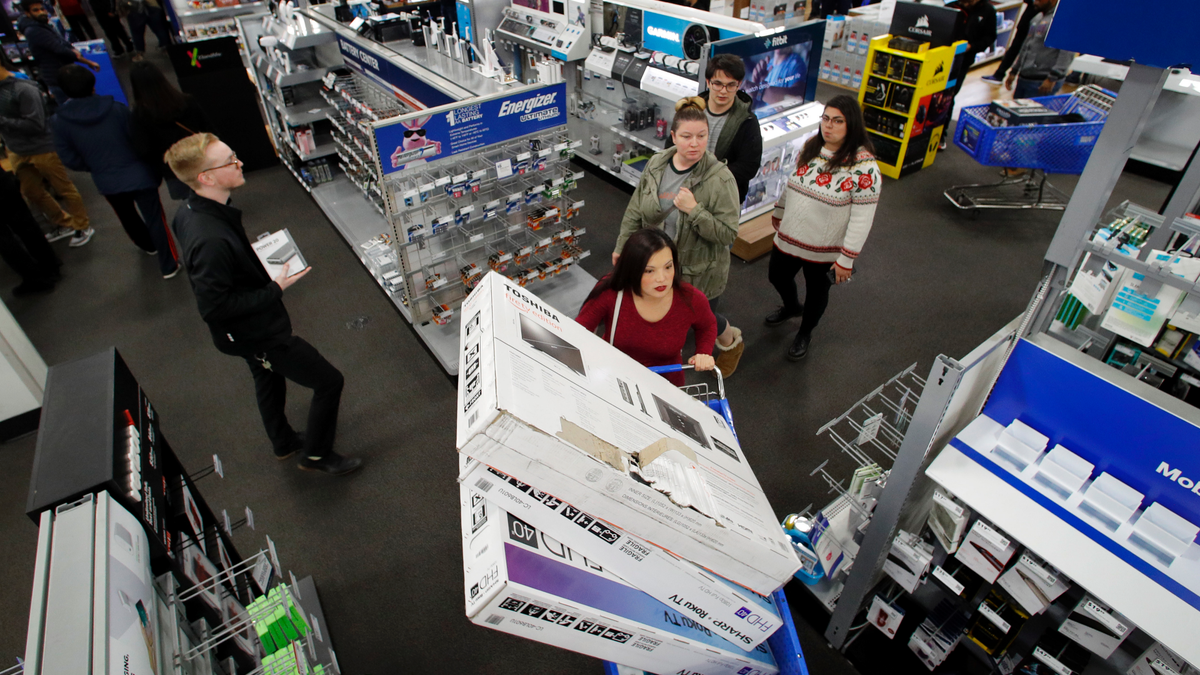Fox News Flash top headlines for Nov. 21
Fox News Flash top headlines for Nov. 21 are here. Check out what's clicking on Foxnews.com
Fake websites, fake products and fake apps are ready and waiting to snag shoppers this holiday season, according to experts.
“Every year at this time, email-based scams rise to a fever pitch,” Dave Baggett, co-founder and CEO of the anti-phishing startup Inky, told Fox News.
One reason scams are so prolific is, Baggett said, bad guys keep churning out lots of fake web domains. For example, they might register a website with a URL such as “amazon-black-friday-deals,” then send out authentic-looking Amazon emails, he explained.

(AP Photo/Charlie Riedel, File)
RUSSIAN HACKERS ON THE ATTACK BECAUSE OF POSSIBLE OLYMPIC BAN
“The key insight here is that the body of the email looks exactly the same whether it’s the real thing or the scammer’s copy,” he added.
Shoppers who take the bait and hand over credit card data will get hurt. “You think you’re logging into Amazon, but you’re really just giving your password to the crooks,” according to Baggett.
Robert Capps, VP of Market Innovation for Mastercard-owned NuData Security, said shoppers should avoid making quick purchases on their smartphone. “With smaller mobile screens, consumers have to slow down and pay close attention to what they are looking at.”
Here are some tips that will help you avoid Black Friday and holiday shopping scams, courtesy of experts interviewed by Fox News.
- Make sure links are accurate. Don’t finalize the purchase if the link doesn’t have the secure padlock icon, “even if you are buying the best offer you’ve ever seen,” NuData Security’s Capps said.
- Don’t use unsecured Wi-Fi networks. If you’re shopping away from home, make sure your mobile device has the latest software updates and avoid unsecured Wi-Fi networks, like those at airports and coffee shops, security experts at Unisys told Fox News.
- Enable two-factor authentication, Unisys added. Two-factor refers to providing two pieces of information, a password and a verification code when signing into a new device or a secure website for the first time. Large reputable retailer sites offer two-factor authentication.
- Never click through on email links. Do not click through to a retailer or e-commerce site in an email. “Instead, go directly to the retailer’s web site via your browser,” Inky CEO Baggett said. "A good rule of thumb is that if you type "amazon.com" into your browser, you’ll get to the real Amazon."
- Deep discounts often equal counterfeit products. Many deep discounts on name brand products are actually fakes, according to Capps. Double-check the reseller to make sure they’re well known and reputable.
- Beware of fake apps. If you download a shopping app, always use a reputable app store like Google Play or the Apple App Store, Capps added.
- Watch out for bogus surveys. Consumers should be skeptical of emails that promise rewards in exchange for taking surveys, Inky’s Baggett pointed out.









































